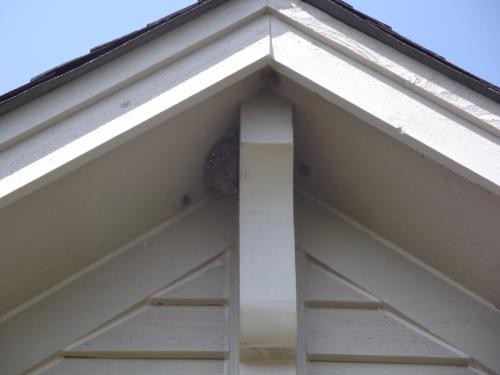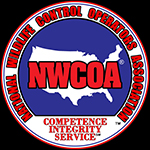Sometimes you may catch a glimpse of a flying object around your backyard and wonder if it happens to be a bee, a wasp or a hornet. These insects are mostly confused with one another, but it is important to know the difference. Why? Some of them are pollinators and beneficial to nature, while others can become aggressive pests that may require professional extermination. This guide explains the differences between a bee, a wasp, and a hornet, why you may encounter problems with each, and when to call on a wasp or hornet removal service.
Bee vs Wasp vs Hornet: What’s the Difference?
Bees are usually gentle and fuzzy insects. You will find them buzzing around flowers or plants. Bees have a roundish body, and their bodies bear fine hairs which assist them in gathering pollen. They are a key component of the environment and aid in crop production. Most bees only sting when they are threatened, and many of them die after they sting once.
Wasps, in turn, have a smooth, glossy body and a narrow waist that connects the thorax to the abdomen. They behave more aggressively than bees and can sting multiple times without dying. Wasps feed on other insects and sweet foods; they also tend to nest in eaves, trees, and even wall cavities.
Hornets are a category of wasp, but they are normally larger and more aggressive. They are usually reddish black and build massive nests (the size of a basketball). If ever you have been stung by a hornet, you would have realized that a bee sting or the common wasp sting could not touch your pain at all. Hornet stings may be fatal for people who are allergic to them.
Sometimes, it is not possible to eliminate them immediately and understanding how they differ from each other helps you determine the safest approach. Although bees are generally beneficial, wasps and hornets may need to be removed, especially when their nests are located too close to homes or schools.
Why You Need to Identify Before Acting
Don’t be in a hurry to apply pesticides if you notice a nest or watch these insects fly by. It helps to start by selecting the right type of insect. If you’re dealing with a colony of honeybees, you might end up moving away helpful pollinators that a professional could move. Dealing with wasps or hornets requires professional pest control to keep you safe and avoid unwanted harm.
Different insects need different treatments. Therefore, bee, hornet and wasp nest removal specialists are given proper training to identify and securely handle hornet nests. Using protective clothing and tools is crucial for them to operate safely and protect both the environment and those around them.
Common Places Where They Build Nests
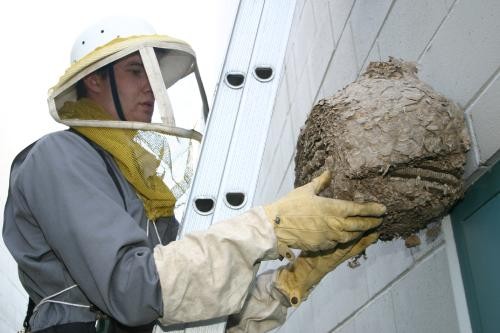
Bees often like to build their nests in trees, inside buildings, or in beehives. When honeybees build their homes, they usually have a distinguishable smell and buzz gently. When you notice bees passing through a little hole in a wall or a tree, it could be a sign of a colony inside.
Wasps like sheltered areas. Often, a paper-like, grey-colored wasp nest is found under your porch roof, in the shed, or dangling from the branches of trees. Wasps are known to find spaces between wallboards to build nests that are often unseen.
Hornets build large, round nests that are constructed in trees or hidden beneath eaves. It is common for these nests to grow fast and attract several hundred hornets. Even professionals advise against removing a hornet’s nest without proper training.
The Dangers of DIY Nest Removal
People often choose to handle these insects themselves to save money. You shouldn’t remove a nest yourself unless you are properly trained. You should wear protective gear, have the right tools, and understand the habits of wasps and hornets to ensure safe removal. Spraying a hornet nest at any time, including the day, can make the nest’s inhabitants attack.
Wasp and hornet colonies become hostile if they believe their nest is endangered. If you interrupt them, they may rush you and sting you multiple times. Allergies can cause trouble, severe pain, or require going to the hospital.
According to the Centers for Disease Control, during 2011-2021, a total of 788 deaths from hornet, wasp, and bee stings occurred (an average of 72 deaths per year).
For these reasons, it’s wise to bring in a professional hornet and wasp nest removal service. They own the gear and understand how to do the work safely and properly.
When to Call Pest Control for Bees and Wasps
Should you see bees swarm around or discover they’re nesting indoors, you should search for “bee pest control near me.” Any visible nest from a wasp or hornet near your home should be addressed immediately. When you hire someone to remove bees or wasps from your home, they will safely address the issue.
You should turn to support resources in particular when you notice any of the following.
- Someone in your family is allergic to insects.
- The nest is too big or placed somewhere high up.
- They are being aggressive or gathering in crowds.
- You’ve worked on DIY solutions, but the issue hasn’t been resolved.
In pest control for bees and wasps, it’s essential to focus on both removal and prevention of future pest problems. Various groups in the industry give practical tips and support to stop animals from returning to nest in your home.
Understanding Bee and Wasp Behaviour
Bees only sting when they feel threatened. They prefer flowers and pollen to bothering people. If a beehive is inside or near your home, it may be unsafe for people with allergies.
Wasp stings are probable, as they become irritated by small impulses. They stand guard over their nests and may become aggressive if someone approaches. They become very busy in late summer and early fall when they are looking out for sugary sources of food.
If you get near a hornet’s nest, they will not hesitate to sting you. Like wasps, but unlike some insects, they can sting more than once. Certain hornet species can shoot their venom directly into a threat’s eyes to cause momentary eye pain or even blindness.
That’s why handling wasp pest control and hornet nest removal always requires the help of trained professionals. They have learned how to remove a wasp nest without disturbing the wasps.
Why Nests Keep Coming Back
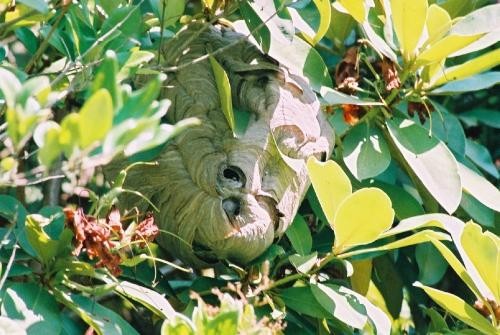
In case you’ve gotten rid of nests before, but they keep returning, the conditions in your home may be inviting for such birds. It is easy for wasps or hornets to build nests in any small gaps they can find in siding, wood that has not been treated, or places under roof overhangs.
Bee and wasp removal experts have tools and solutions to help seal openings, use repellents in problem areas, and suggest ways to avoid new problems. When the same pests keep returning and you haven’t fixed the problem, call in someone who is trained rather than doing it yourself again.
Is It Ever Safe to Handle It Yourself?
Sometimes, you can remove a small, empty nest yourself without causing any problems. But even then, it’s risky. We usually don’t know if the nest is occupied or simply looks that way. Inside a pile of firewood, insects might be found sleeping or hiding. If you take on wasp removal yourself without all the information, you could get stung.
If you choose to tackle bee or wasp problems on your own, always use safety gear, plan your work for when it’s cool outside, and know how and where to escape in case of an emergency. If so, it’s better to search online for “wasp pest control near me” or “defense against hornets.” It’s more effective to rely on professionals than to carry out the task yourself.
Benefits of Professional Bee and Wasp Removal Services
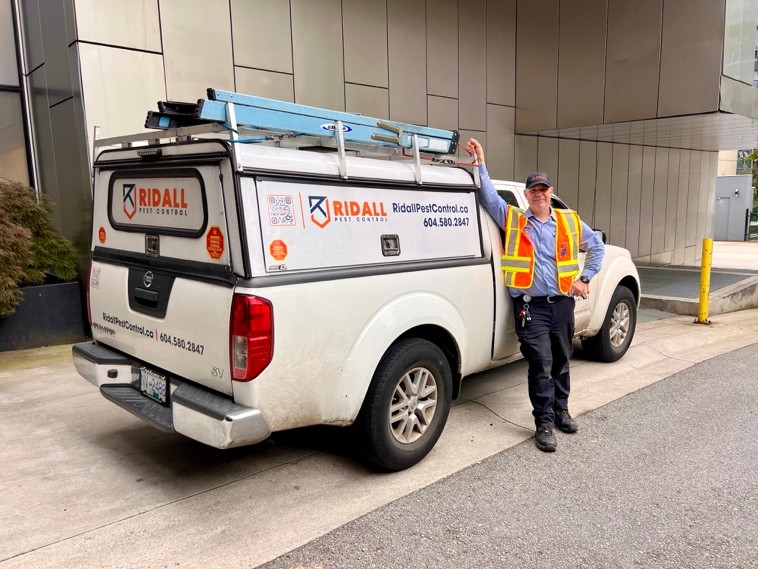
Hiring an expert is often more effective than attempting to do the job alone. It’s the first and best way to have a safer home for you and your family. Removal teams equipped for bee and wasp work are dressed in protective clothing, apply safe sprays, and are aware of what makes insects behave differently.
Second, they offer long-term results. In addition, they get rid of both the insects and anything that would lure more insects to your property. It is common for services to allow follow-up visits or to offer some guarantee.
In addition, they can play a role in preventing disease. For instance, professionals seal up cracks, trim surrounding trees, or place repellents, all to prevent wasps from nesting in the future.
If you search online for professional bee and wasp removal or ways to remove a hornet nest, don’t delay in connecting with a company. Waiting to solve the problem might allow it to worsen until it is unsafe.
What to Expect During a Professional Removal Visit
When you use a bee and wasp nest removal service, the first step is to identify the type of insect and locate its nest. Pest professionals will arrange to remove them during a calmer time for insect activity, for example, early morning or evening.
The technician will put on coveralls and special accessories before preparing the necessary products. If the pest is different, they might employ methods such as vacuuming, using specialized products, or simply dismantling its nest. They’ll get rid of the nest, clean the area, use a repellent, and tell you how to stop the problem from recurring.
Conclusion
Though bees, wasps, and hornets are important to nature, when they come near our living spaces, they can be quite dangerous. Although bees are calm and play an important role in pollination, wasps and hornets tend to sting and can be harmful when their nests are disturbed.
Explaining the difference helps guide you when handling pest problems and taking preventive steps. Even though DIY is cheaper and faster, it usually ends up making infestations worse and more likely to return. Those who use professional pest control companies can expect their homes to be safe from insects for a long period.
Need help now? At Ridall Pest Control, we offer high-quality, professional pest control services. Our team of experts will employ an integrated pest management approach to safely remove bees, wasps, and hornets from your home, utilizing specialized techniques. In emergencies or when you require long-term protection, our team is prepared to assist. Contact us today to address the issue before it escalates and becomes more complicated.

